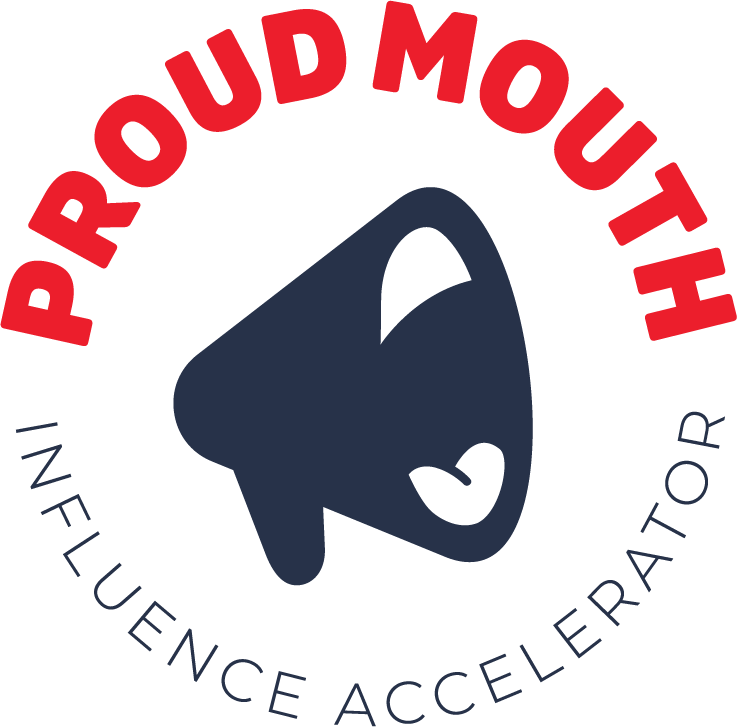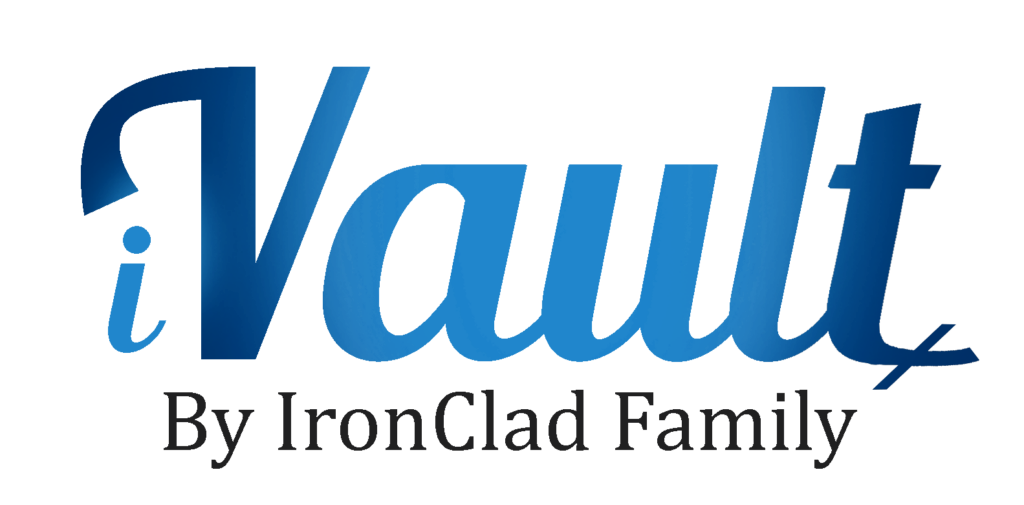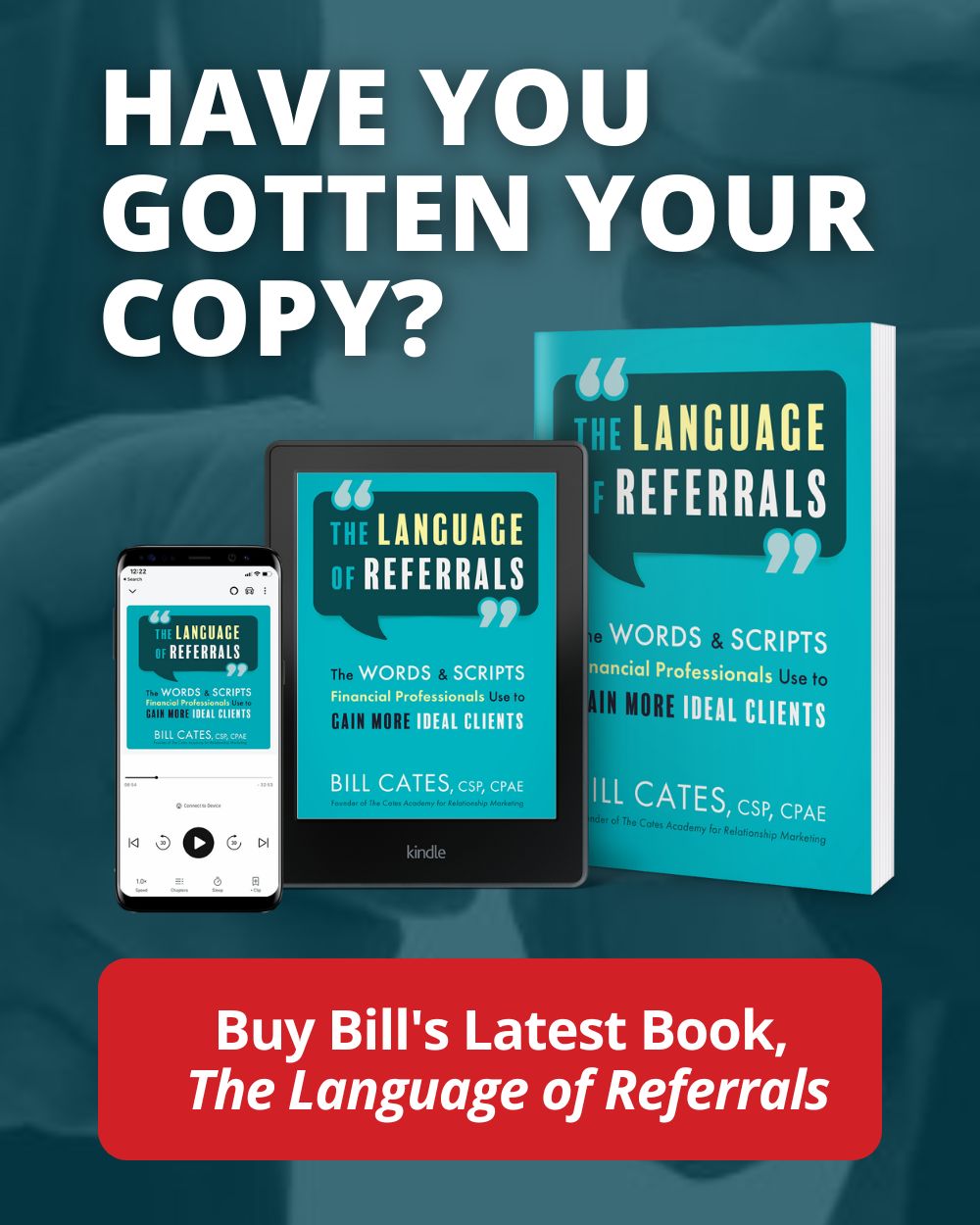Check Out Bill Cates’ NEW Top Advisor Podcast™
Interviews with Top Advisors for Top Advisors!
Top Advisor Podcast™
Ep. #94 – From Stuck to Scaling: How Top Advisors Build Momentum with David DeCelle
Are you “in love” with your business? Or did you used to be, but have “fallen out of love?”
In this episode of Top Advisor Podcast, I interview David DeCelle, CEO of Model FA, whose passion is helping advisors fall in love with their practice – either “again” or for “the first time.”
David shares actionable insights on scaling your business effectively while maintaining passion and enthusiasm.
David said, “Success in financial advising is about more than strategies; it’s about loving your business and creating genuine connections.”
How can financial advisors simplify operations to regain focus? What practical steps foster trust and meaningful growth?
David discusses strategies for systematization, identifying personal strengths, and the importance of nurturing client relationships authentically.
Want More Top Advisor Podcast Episodes? CLICK HERE!
–
Bill and David Discuss:
- Why advisors lose enthusiasm and how to reignite it.
- The four personality types in advising and the tailored growth method.
- Creating balance by leveraging the “Energy Audit” framework.
- The “Deposits vs. Withdrawals” approach to deepening client trust.
- Utilizing AI to enhance business efficiency without replacing human connections.
Sponsors:
- SHOW SPONSOR: ProudMouth
- EPISODE SPONSOR: IronClad Family | Holistic Advisor Guide
Connect With David DeCelle:
Resources:
- RapidFire Referrals
- Get a copy of “The Language of Referrals”
- Get a copy of “Radical Relevance”
- Get here our new guide: The 3 R’s of Relationship Marketing
Connect With Bill Cates:
-
Show Transcript
Bill Cates:
Welcome to the Top Advisor Podcast, brought to you by Proudmouth’s PodRocket Academy. I’m your host, Bill Cates, creator of the Cates Academy for Relationship Marketing. In each episode, I interview one of our industry’s top performers, getting them to pass on their secrets to success to you so that you can impact more lives and generate more income.Now onto the show.
My featured guest today is David DeCelle, a former advisor and now the CEO of Model FA, a firm that helps growth minded financial professionals scale smarter, serve better and fall back in love with the business. We’ll be diving into topics like business development, confidence building, trust acceleration and how to structure your team for maximum engagement and growth. If you’re looking for fresh ideas and proven frameworks, you you’re in the right place. But before my conversation with our featured guest, I want to let you know about some free resources that I invite you to retrieve. After you’ve listened to today’s interview, you’ll find checklists, guides, videos, other tools. Simply go to referralcoach.com/resources. Now write this down unless you’re driving.
That’s referralcoach.com/resources. It’s also in the show notes. While you’re there, make sure you sign up for our weekly tips. We’re always sharing best practices and we’ll notify you of our newest podcast interviews as they go live. And while these are free to you, I think you’ll find them quite valuable.
The Top Advisor podcast is sponsored by the folks at Proudmouth who help advisors increase client engagement and attract more ideal clients. And this episode is sponsored by Ironclad Family who brings you Ivault X, a financial advisor enablement tool focused on upping your game as a holistic advisor. And now on with today’s show.
As I mentioned, David DeCelle is the CEO of Model FA. He’s a former financial advisor who helps growth minded professionals build better businesses and better lives. Which is nice. David brings a rare mix of tactical know how high level energy as you’ll see a deep understanding of what it takes to succeed in this ever changing industry. Now, David was raised in a middle class household. He knew at an early age that he wanted to redefine success for his generation of the family. Making money was a big motivation, but knowing how to put money to work was his main goal. That’s why he chose to become a financial advisor and he’s never looked back.
His most treasured moment is watching a financial advisor fall in love with their business again. And I’m sure to ask him about that. In just a minute. David the sell zooming in from St. Petersburg, Florida. One of my favorite parts of the world. Welcome to Top Advisor podcast.
David DeCelle:
I appreciate you having me, Bill. It’s been a long time coming. You were on my podcast, I want to say, a couple of years ago. So I’m appreciative and grateful to be on your show here today.Bill:
David, you like to talk about advisors falling in love with their business. Again, first of all, what typically causes advisors to fall out of love? And then how do you help them reignite that passion?David:
Well, I’ll actually speak to this with a current client of mine that I’m helping with this process, and his name is Tracy. He’s been in the business for a number of years. He’s probably in his mid to late 50s. And Tracy, if I’m off on that and you’re listening to this, I apologize. But he’s definitely been around the block, so to speak, and he has a very successful business. And what we’re working on with him is he’s grown to a point to where he’s. It’s bigger than just himself. He has a few team members that help support him, but they have yet to really streamline their systems and processes.So what’s happening with him at the moment is he’s getting bogged down with all the new business that he’s bringing in the door and hasn’t done a good job systematizing. So what he intended to get into with this business is the three eyes that I’m sure we’ve all heard income, impact, and independence. And what he’s been doing really good at is the impact and the income, but the independence. He finds himself working 60, 70, 80 hours a week to just keep up with everything. And. And when your business pulls you in to the weeds is when you can start falling out of love with what you’re doing. And we have an exercise called an energy audit that we bring our clients through. Where? In the top left quadrant.
It’s things that you love to do and you’re great at. Next to that is things that you like to do and you’re good at. Underneath is things that you don’t like to do but you’re good at. And then finally, things that you don’t like to do and you’re bad at. And oftentimes when people fall out of love with their business, it’s because they’re wearing multiple hats and they’re spending a large portion of their time in those bottom two quadrants. And what I help them with is working out of those helping systematize, automate, and ultimately delegate to remove themselves from those bottom two quadrants and really focus on the top two, preferably the top left, things that they love to do and that they’re great at. So usually the cause Bill is frankly just spending their time and energy on activities and functions inside the business that are better suited for someone else where those activities fall in their top two quadrants. So that would really be the main cause.
Bill:
Income, impact, and independence. And when you say independence, it doesn’t. You’re not talking about being an independent advisor. It’s independence. What within your firm just feeling like you’re freer to do what you love to do, is that?David:
Yeah, I would say it’s more freedom than independence. But the three I’s. Yeah, I guess it’s easier to say the three I’s as opposed to the two I’s and the one F.Bill:
Course, that would be a big IF. Sorry, I digress.David:
I have a baby girl coming into this world. September 1st is my wife’s due date with our first child. So I will add that bill to my list of dad jokes. I appreciate it.Bill:
Well, I have a colleague that uses kind of a somewhat similar measurement. Hers is gem J E M. You know, does the activity bring you joy, energy and money?David:
I like that.Bill:
And those are different but compatible. So. So. All right, next step. I want to talk about a concept you talk about advisor DNA. I’d like you to walk us through the DNA. I think it’s connector, if I’m remembering. Rainmaker, guardian, architect, something like that.Tell us a little more about that and how knowing this can help us.
David:
Yeah, so you hit the nail on the head with the different types of advisor DNAs that we believe exist. And we have a proprietary assessment tool to help advisors discover who they are. Although in their gut and in their heart, they know kind of how they’re wired. So typically when you just look at those four personality types, connector, rainmaker, guardian, and architect. When you look at those on the surface, typically the connector in the rainmaker, those are the types of people to where business development is very natural to them. Whereas the guardian and the architect. The idea of business development asking for referrals can cause them a great deal of discomfort and they end up over rotating and just not asking for referrals at all. And as a result, they end up growing a lot slower than the connectors and the rainmakers.The other thing that we see oftentimes is when the firm is with the second generation. Oftentimes that firm was initially grown by a connector or rainmaker. And those folks tend to not do a good job documenting the things they did to grow the business. So now the second generation essentially just bought an income stream, but not really an asset that’s. That’s actively growing, and we really come in and help them with that. So, for example, a connector or a rainmaker, if there were events to attend to, where prospects, you know, would. Would be in attendance, if there were, you know, networking groups, things like that, they would thrive in that area. The guardians and the architect, they would serendipitously happen to have a stomachache that day and not go to the event.
Whereas, you know, a guardian and an architect, if you can teach them a way. And one of our methodologies is to garner feedback from clients and understand their experience that they’re having and then just simply asking, you know, hey, in the event that someone in your circle of folks, you know, had a question around financial planning, is that something that. Is that a situation to where you would bring us up, or do you tend to keep our relationship more close to the vest? And what we find is that oftentimes clients say one of three things. One is. Or I guess technically one of four things. One is, no, I keep it close to the vest, but that’s a very, very small percentage. The other scenario would be, yes, I’d have no problem doing that. And then the two likely scenarios is, I just gave your name out to someone recently, or I talk about you all the time.
So now that the guardians and the architects have sort of gotten that permission slip, and the affirmation that, hey, this client is willing to introduce us, now, they’re more likely to be empowered and emboldened to actually go down that path. So we approach it with the guardians and the architects from a place of curiosity to begin with to, in turn get the affirmation. And then we have language dialed in on how to handle that response from them of, I gave your name out, or I talk about you all the time. Because by and large, when they hear that, they’re like, well, no one’s mentioned your name when I’ve talked with them. So those referrals are just referrals. They’re not true introductions. And we teach them on how to capitalize on their opportunities. So the common misconception to put a bow on this is that the connectors and the rainmakers are the only ones who can develop business.
That’s inaccurate. Everyone can develop business. They just need to do so in a way that. That’s aligned with their personality.
Bill:
Yeah. So you’re not trying to turn a guardian into a connector. You’re just giving him or her a few tools to move in that direction a little bit and then produce some results. Right. Makes sense. I love your comment about curiosity. Man, It’s just a huge tool muscle to develop. Some people are naturally curious.You know, there’s the old phrase ABC, always be closing in my presentations. I like to say always be curious. And you learn so much, don’t you? And you become a better conversationalist when you’re curious. And that’s really what you’re just asking these folks to do is ask questions that the question is pretty easy to ask. You’re not asking them to step too far out of their comfort zone so then they can produce results. Does that make sense?
David DeCelle [00:12:05]:
100%. Yeah. As long as the advisor is genuinely curious about the client.Then this process works really well. Which is why we start off by just getting general feedback from the client.
Bill:
Right.David:
And then the next question around willingness to refer if that situation arises. It’s just the next question they ask as a pro as opposed to an abrupt stop in an annual review. And then talking about referrals. It kind of softens that process a bit.Bill Cates [00:12:36]:
Yeah, makes sense. Well, we’re just warming up here. There’s quite a few questions I want to ask you about. I want to talk to you about your concept called Bending Time. We’re going to talk a little bit about centers of influence, relationships, things like that. But first a word from one of our show sponsors.SPONSOR MESSAGE:
I want to take about a minute.To talk about one of the big trends in our industry and that is holistic financial planning. As you may know, holistic planning is not just about investments or insurance. Holistic planning is about creating a master plan where everything works together. Investments, insurance, taxes, estate planning, even your clients personal goals and values come into play. Many clients are loving this approach where their advisor connects all the dots for them. And this more comprehensive approach leads to clients gaining greater clarity, confidence and peace of mind. Now there’s a platform that makes it easier for advisors to engage in true holistic planning. It’s called the IVAultX from the folks at Ironclad Family.
IVAult X is a one stop digital vault for all your client financial documents, personal records and even legacy plans. You help your clients get organized and secure for which they will love you.
Financial advisor Michel Thorp said, as a trusted advisor, I offer the IVAultX service to my clients to protect their investments and build a relationship between myself and their family. And financial advisor Salvatore Sofia wrote, I enrolled a couple with ivaultX and during our holistic conversation I uncovered a dormant 401k. I handled the transfer earning a $5,500 commission, and this couple referred their son to me to store shared assets, which made me his advisor too, before we even met. Your next step is to grab your free guide on how to make becoming a more holistic advisor easier for you and your team.
Simply go to holisticadvisorguide.com to access this free guide.
That’s holisticadvisorguide.com this link is also in the Show Notes.
After you receive your free guide, you’ll have the opportunity for a complimentary strategy session to discuss holistic advising and IVAultX.
IVAultX just may be your key to bringing integrated financial guidance and the resulting peace of mind to your clients and their families.
Bill:
And we’re back. David how does the concept of deposits and withdrawals play out in real advisor, client and center of influence relationships? Can maybe give us an example of one of each?David:
Yeah, I’ll give you an example. Speaking through my own personal experience of not doing it well and then learning that that was the wrong way. So the first half of my career as an advisor for the first few years, every single time I reached out to someone I was asking for something, I was asking for their time, I was asking for their money, and I was asking for their network and both current clients prospects, family members like everyone fell into the receiving end of one of those three asks. And what I found is each pocket of people I just mentioned, they started answering my calls less, responding to my texts or emails, slower if at all. And I realized that the relationship was very much weighted in taking and withdrawing from as opposed to depositing into so what I the thing that sort of clicked with me is I thought of an analogy almost like your relationship with your bank. If all you do is withdraw money, well eventually that account is going to be empty and that banking relationship is no longer relevant and they stop banking with you. Whereas if you’re making way more deposits of volume wise and actual dollar amount wise than you are making withdrawals, then it’s just a good working banking relationship. So that sort of helped it click with me where I wanted to make sure that, you know, for every withdrawal that I that I made, there was at least five, if not 10 deposits into that relationship in between.So they knew that I truly cared about them and their wellbeing, their financial plan and their personal life. They knew that that was abundantly clear. And then they almost would feel indebted in a good way to oblige to whatever my withdrawal was, oftentimes asking for introduction. So ways that you can do that, you can do it both on a one on one scale, and you can do it at, at scale as well. So an example for at scale ranges from your own content that you’re putting out there, like your podcast, my podcast, you know, we’re, we’re adding value to our target audience every single week. And that’s imperative to be able to, to add value. But then there are scenarios like one of my clients, Jerry, just had surgery on his jaw.
And I learned from him that he can’t eat solid food for like six weeks. So what I did was I sent him these liquid protein drinks and these liquid salad drinks. Probably cost me, I don’t know, 50, 60 bucks. But not only was he grateful for it, but he was also. He also sent me a picture of his protein drink right next to his laptop when he was back in the office. For another. Thank you. Jerry knows that I truly care about him, you know, But Jerry also listens to my podcast.
Jerry also interacts with my content. Anytime I have an idea that’s outside of our meeting cadence, I share it with him. I’ve connected him with other people. So those are all examples of various deposits that I make into the relationship. And there’s been two different instances where I’ve made withdrawals from that relationship. One is asking for introductions and, and then the other one was asking him to serve as a reference for a prospect that wanted to speak with a couple clients of mine. And he obliged to those, no problem because of all the deposits that I made into the relationship. So the whole idea is making sure that your deposits into the relationship outweigh any withdrawals that you make.
And you don’t get overweighted to the withdrawals. Otherwise it’s going to rub your clients the wrong way.
Bill:
And you’re talking about two kinds of deposits. I feel it’s, there’s the, I’ll call it the value oriented kind of deposit, like an article, podcast information, and then the personal deposit. Right. Like a little touch point of a personal connection, whether it’s a gift or just happy birthday or how your kids soccer game will go over the weekend, any of that. Right. So it’s, there’s different ways to make those deposits, I guess, is what I’m saying.David:
Yeah. Like, you know, two other quick examples. You know, I have Someone today, Terry, it’s his birthday today. So he got a phone call from me first thing this morning. To the extent where I do that with all my clients, to the extent that one of my clients, John, that I’ve worked with for seven years, you know, I usually call him in the morning, but I didn’t call until the afternoon and he busted my chops. He’s like, hey, you’re, you’re late this year. Right. They come to expect that.And a birthday call, as simple as that sounds, it’s so impactful. It’s more impactful than the birthday email, than the birthday card, than the birthday text, than a birthday comment on Facebook. Because they can count on one hand the amount of people these days that actually call on their birthday, be one of those fingers they hold up. And another example is a client of mine, John, this was last year, he was going on a trip to Aruba and just in conversation I was like, oh, I’ve been to Aruba a few times. Where are you staying? He told me where he was staying, so I, I took a note of that. And a couple months later, when he was on this trip, there was a bottle of champagne and some chocolate covered strawberries for him and his wife that were in his room waiting for him when they got back from the beach that day. So it’s like little things like that and they don’t have to cost money. They could be as simple as picking up the phone and just seeing how they’re doing or saying happy Birthday.
Bill:
Right, right. Because now that you’re no longer an advisor and I’m not a licensed advisor, we don’t have to worry about, you know, compliance in terms of little gifts. But, but it really isn’t about the money, isn’t. It’s a little gestures along the way. You talk about something called a C3 list. What is that and what’s it for?David:
Yeah, so the C3 list was something that was actually birthed from a conversation that I had with then a random girl that’s now my wife pregnant with our child.Bill:
A random girl.David:
So years ago when we first met, we had met out in downtown St. Pete and we were chit chat and having a good conversation. And then she asked me, she said, why are you so confident? And I thought about it for a moment and I said, well, I keep all the little promises that I make to myself on a daily basis. And the more I thought about it, the more I was like, this needs to be systematized. Because I think that that’s something that could really help a lot of other people. So what I also noticed is if business was going well, but my personal life wasn’t, let’s say I wasn’t eating healthy, I was drinking too much, or, you know, I wasn’t going to the gym, like, I just felt off. And if my personal life was dialed in, but my business wasn’t growing, I felt off. And then lastly, if both of those were going well, but I wasn’t intentionally being thoughtful and of service to the people around me, then I felt off. So I developed the C3 list, which stands for commitment. You need to commit to doing certain things, right? Consistency, you need to be consistent with doing those things. And then ultimately that commitment and consistency breeds confidence, which spills into every single area of your Life. So the C3 list contains five different things that you do on a daily basis that fit three categories. It’s two things that move your business forward that’s a hundred percent in your control. So it’s either you did them or you didn’t. And that could be a certain amount of outreaches.It could be creating a certain amount of content. Content could be advancing a certain amount of relationships, you know, within the folks that you want to progress with. It’s two things that move you forward personally, which simply could be waking up when your alarm goes off and not hitting snooze. It could be eating clean, going to the gym. You know, anything along Those lines, again, 100% in your control. And then one thing that moves someone else forward. So, and that could be very simple. That could be, you know, holding the door open for the awkward amount of time to where they start jogging towards the door because they feel bad.
It could be putting away, you know, two shopping carts instead of just yours. It could be, you know, picking up the piece of garbage as you’re walking into some somewhere like, you know, at the gym, I probably pick up, you know, four or five different rags every single day I go to the gym of people just leaving them on the floor. It’s like little things like that. And when you combine all those, what you experience is every part of your life is moving forward. And when you start to see the results of those daily actions turned into monthly and quarterly and yearly progression in your life, your confidence is through the roof. And you never feel as if you’re lacking in one area and thriving in another area. Like, there’s so many stories I hear from people where their business is wildly successful, but their relationship with their spouse is terrible because they’re working all the Time. This helps, doesn’t totally fix, but it helps solve for that to ensure that you’re operating at a high level in every area of your life that you’d want to evaluate.
Bill:
Yeah, I like that. Commitments to yourself. I could see that. I could see that snowballing over time and how that would build personal self confidence that other people would notice. You know, it’s time for a quick break from the folks that make this show possible. The folks at Proudmouth. They also help advisors start their own podcasts.SPONSOR MESSAGE: I have coached and interviewed many advisors who report significant success with their podcast. A podcast can create deeper engagement with your clients and attract more reach, right, fit clients to your practice. I’ve been working with the folks at Proudmouth since the inception of this show. Not only do they take care of the nuts and bolts of producing and hosting the episodes, but they’ve shown me how to increase my influence and attract more business. Proudmouth has a tool they call the Managed Influence Accelerator that creates a powerful content ecosystem that amplifies your voice, builds your influence, and drives real growth. And their Sonic boom coaching program with podcast pro Matt Halloran will guide you through the entire process. They’ll make sure you have the right strategies in place and then employ the exact right tactics for you. Podcasting isn’t for everyone.
And with that said, I think you owe yourself a look at how having a podcast can help you play bigger and build a better business. To book your free strategy session, go to proudmouth.com cates. That’s proudmouth.com, forward slash, cates.
Bill:
And we’re back. David, I’ve heard you use the term bending time. Sounds like a science fiction movie. What is that? How can advisors use it to accelerate their growth?David:
So I’m not a sci fi fan. So what I would argue is that my wife loves sci fi. So if I go to bed early, that’s when she. That’s when she watches those. But that’s funny. I would argue that this idea of bending time is actually based in reality. And just hang with me for a moment as I try to map this out. So let’s just agree for sakes of the example that it takes 50 touch points with a person to hit the holy grail of trust.Okay, so 50 touch points equals trust. Let’s assume that to be true. All right, well, what you can do is you can have five touch points a year, and after 10 years equals trust. You could have 10 touch points a year, and after five years instead of 10, it equals trust. Or you can have 50 touch points in a year or even in six months. And it equals trust. So the idea of bending time is the consolidation of interactions with a particular person that you’re looking to build trust with. And when you increase those touch points, you increase the relevance.
I see book behind you, Radical Relevance. So maybe there’s some similarities here, but you’re increasing and maintaining your relevance with them. And the more time that you’re spending in their mind, assuming that those interactions are positive, the faster they’re going to go through that trust curve. So ways in which you can do that. I already shared some examples of the deposits and they’re very similar here. Where you know, in your sales process you probably have an opportunity for 10 touch points immediately, like over. Over a month long period where it’s what’s the experience when you schedule them, what’s the experience when you confirm them for that meeting, when you have the meeting, the follow up from the meeting, the same thing for the next meeting. Are you connecting with them on social media? Are you sharing them a piece of content based on the conversation and what you know about them that you’ve created that is relevant to them? So it’s very easy to initially feel overwhelmed of.
Wait, I have to have 50 touch points with every single person? Well, yes, in my opinion, but it’s easier than you think because for every meeting there should be at least three or four touch points built in. From scheduling to confirming to having the meeting, to following up from the meeting. Like that’s four in and of itself. So the whole idea of bending time is consolidating the amount of touch points to speed them through the trust curve.
Bill:
Ah, got it. Well, I don’t usually like science fiction either, so I. We’re in the same camp there. By now, David, some of the listeners are probably thinking, all right, how can they learn about more about David to sell and Model fa, where should they go or what should they do to learn more about you and the great work you do?David:
Yeah, so really two main areas. One is just modelfa.com if they want to check out the company, I guess three areas with that is, you know, type in Model FA wherever you listen to podcasts and we have about a 180 some odd episodes that we’ve done with a lot of great guests, Bill included. So you can go and look through the archives and see what topic could be relevant to you. And then if you want to connect on more of a personal basis, I interact with a lot of the folks on Instagram and I Put a lot of my content out there. You know, it’s just avid underscore desell on Instagram. But then good old Google. If you just Google my name, my LinkedIn’s there, Facebook’s there, everything that you’d want to interact with is on that first page of Google.Bill:
Beautiful. Modelfa.com and then David the Cell D E C E L L E. All right. In the show notes too. So a couple more things here. I know that you work with solo advisors, ensemble firms. I’m just curious, how does your approach and some of the things you talked about shift depending on the size and or structure of the practice?David:
So that’s a good question. What I would say is that regardless of the size of the firm, advisors tend to have similar challenges and opportunities as it relates to growth. So there’s a lot of similarities regardless of the firm size. Where I would say the differences of our work comes in based on the size is as people get through these different growth curves. Like going from a solo practitioner to hiring their first staff or becoming more of an ensemble practice with a team based approach. Working through the growth curve of that ensemble practice to more of an enterprise style firm. That enterprise style firm. Going through the growth curve of going from growing organically to growing through M and A activity.And with each of those transitional moments, there’s a variety of challenges that they’re likely going to come across. Like personnel, right. Who should be on the team, who’s no longer a fit for the team. Did the business grow faster than that particular team member? Making sure their systems and processes are set up in such a way to be scalable and handle the influx of business. Making sure that you’re segmenting your clients as you grow so that you can rework the service model based on the particular tier. So those are just some examples. But the common theme that I come across that is very similar amongst the firms is just their growth strategy. Oftentimes they try this, they don’t give it the time and attention it deserves.
So they’re like, oh, this doesn’t work. And then they try something else and they never give something, you know, the solid enough effort with enough time to see the fruits of their labor. So they come to us and we’re like, well, let’s just do this. And they’re like, we’ve tried that. I go, for how long? Well, a few months. Didn’t work. Okay, well that’s not the appropriate timeframe. So those would be some of the similarities and differences regardless of firm.
Bill:
Firm size.David:
Yeah, it’s kind of it’s time. It’s also, yeah, I tried that. It didn’t work. All right, well maybe how you did it didn’t work. It doesn’t make the strategy not a sound relevant strategy. It might have been the implementation. Right, so there’s the time and then the implementation. I’m with you on that one.Bill:
So last question for you. Looking ahead next five to 10 years, what do you think needs to shift in terms of advisor mindset? How do they need to think to thrive moving forward?David:
So I don’t believe that in our industry that we will be replaced by AI. I think that AI will further empower the DIY investor that wasn’t going to be your client anyways. But what I do believe is firms that lean into AI will outperform, beat and crush the firms who don’t adopt AI. And I was very resistant to AI nine to 12 months ago. I’m very human forward and don’t want people to be replaced. And I realized it wasn’t going anywhere. Just like the Internet wasn’t going anywhere. No matter how many people kicked and screamed about it, AI is not going anywhere.So I’ve leaned into AI for our business. I suggest all of our clients do as well. And we have a department that helps advisors integrate AI into their business. But even something as simple as I don’t send follow up emails anymore, my system recognizes when it’s a client conversation, a partnership, a sales call, a team call, and the email is automatically sent afterwards. That saved me at least 10 hours a week. So what firms are gonna realize is that when they lean into AI, they’re gonna be able to increase their business by 50 to 100% with no additional personnel. And the ones that don’t lean into it, they’re just going to grow slower and have more pain points. So over the next.
You said like five to 10 years. Frankly, I think five to 10 minutes or five to 10 months to really focus on this because it’s moving so, so fast.
Bill:
You know, a realization I just had the other day, it’s kind of a blinding flash of the obvious is the way people are using AI for prospecting, for automated marketing actually has made the relationship side of things, referrals, introductions, other things you’ve talked about here, even more important. Right? Because we already know that everyone’s being deluged, but now they’re being deluged by stuff that’s. By even fake stuff. I mean, look at the photos that are being generated, etc. So what’s going to happen is there’s going to, going to be less trust, less trust in the communication, less trust in even the information that’s being delivered. Right. Which of course is an argument for the borrowed trust that comes from referrals slash introductions. I, I, you, you didn’t see this question coming, but I just wonder if you could comment on that observation of mine.David:
So I agree that it could create a lack of, of trust. Especially, you know, I’ve seen videos, video advertisements recently and it’s all AI. The person’s not real, but like it looks real. Yep. And that’s not gonna go anywhere like that. That’s coming. But the consumer, I believe, is going to be starving for human attention. They’re not just going to want to interact with, with robots, so to speak.So like, on the marketing side of things, I think that you should create your own content via podcast, short form videos, long form YouTube videos, but lean into AI to help with the editing process. So the splicing into clips and magnifying and dicing up all the content that, that you’re creating, not to replace you as the talking figure and the thought leader. So I do think consumers will be starving for attention from other people like them. Instead of the robots that are here, I was going to say are coming, but they’re here.
Bill:
I would add, don’t let I replace the relationship building. It can augment it. Right. We know that it can help us. It can streamline, you know, but not fully replaced. And I think when it comes to money and financial planning, one thing I’ve also seen, by the way, is, you know, people say, well, baby boomer, not baby boomer, but you know, millennials and X and Z, they don’t care as much about the relationship. Well, I am actually seeing research that shows as they get a little older and as they increase in income and as they have children and buy their home, maybe a little later in life, their behavior is changing, it is becoming more relationship oriented than it may have been before that. So that’s just to say that the relationship side is never going to go away in our industry.David:
Well, and you bring up, if I may just interject quickly, you bring up a good point about making sure AI doesn’t replace the relationship building process, but rather augment it. And we believe that too. So like, we developed an AI tool that advisors implement and it connects to their note taker, their CRM and their email. And they get an email from this AI tool every week that says, hey Bill, here are 12 clients that you should reach out to and here’s why so and so’s daughter just graduated college because it learned it from the notes. Here’s an email draft that you can send to them. So and so should be, you know, finishing up their home renovation. Here’s an email to check in and see how that’s going. So it can help augment and systematize things.But I do think that you should use that freed up time to use to have a human touch point and experience with your clients.
Bill:
Beautiful. Love that. My featured guest on today’s show has been David Decelle, the CEO of Model FA. Modelfa.com David, thank you so much for sharing your wisdom today with our listeners and for just the great work you’re doing in our industry in general. Thank you.David:
Awesome. Appreciate you having me. Bill.Bill:
You bet. To you, the listener of this podcast, may I ask two small favors? If you like the episode or like the podcast in general, please leave a five star review in the platform you’re listening to the show. Not all platforms have a place for reviews. The big one out there is Apple Podcasts. They do. So if you could do that, I’d be grateful. Thank you. What other advisors in your orbit do you think should listen to this episode? Don’t keep it a secret.Share this episode. Share the podcast with other folks out there.
The Top Advisor Podcast is sponsored by the folks at Proudmouth who help advisors increase client engagement and attract more ideal clients and I should add, produce this podcast for me. Go to proudmouth.com/Cates that’s proudmouth.com/cates and this episode is sponsored by Ironclad Family, who bring you ivault X, a financial advisor enablement tool focused on upping your game as a holistic advisor. For them, just go to holisticadvisorguide.com that’s holisticadvisorguide.com and I invite you to come visit me CoachCates.com or if you’re part of an organization that’s looking for speakers, go to BillCatesSpeaking.com we’re going to put all this in the show notes. Just looking to serve, looking to help. Until next time, stay relevant, keep learning and believe that your value is worth sharing. Thanks for stopping by.
Thank you for listening to the Top Advisor Podcast brought to you by ProudMouth PodRocket Academy. I encourage you to Visit my website referralcoach.com for links to my books, online courses, and to register for the Cates Academy.
About Our Guest

Raised in a middle-class household, David knew at an early age that he wanted to redefine success for his generation of the family. Making money was a big motivation, but knowing how to put money to work was his main goal. That’s why he chose to become a financial advisor. And he’s never looked back. He’s a compulsive learner, the guy who cares the most, and one of the hardest workers you will ever meet. He loves nothing more than acquiring layers of life-enhancing knowledge – from social media strategies to self-actualization – and sharing it to help others grow and succeed. His most treasured moment is watching a financial advisor fall in love with the business again.
He is equally committed to his own mind and body fitness, and to intentionally spending quality time with family and friends.
![]()
Never Miss an Episode!
Click below to subscribe on your favorite podcasting platform.
P.S. Don’t keep Top Advisor Podcast a secret … share with a friend or colleague!
Click Here to Subscribe Tell a Friend
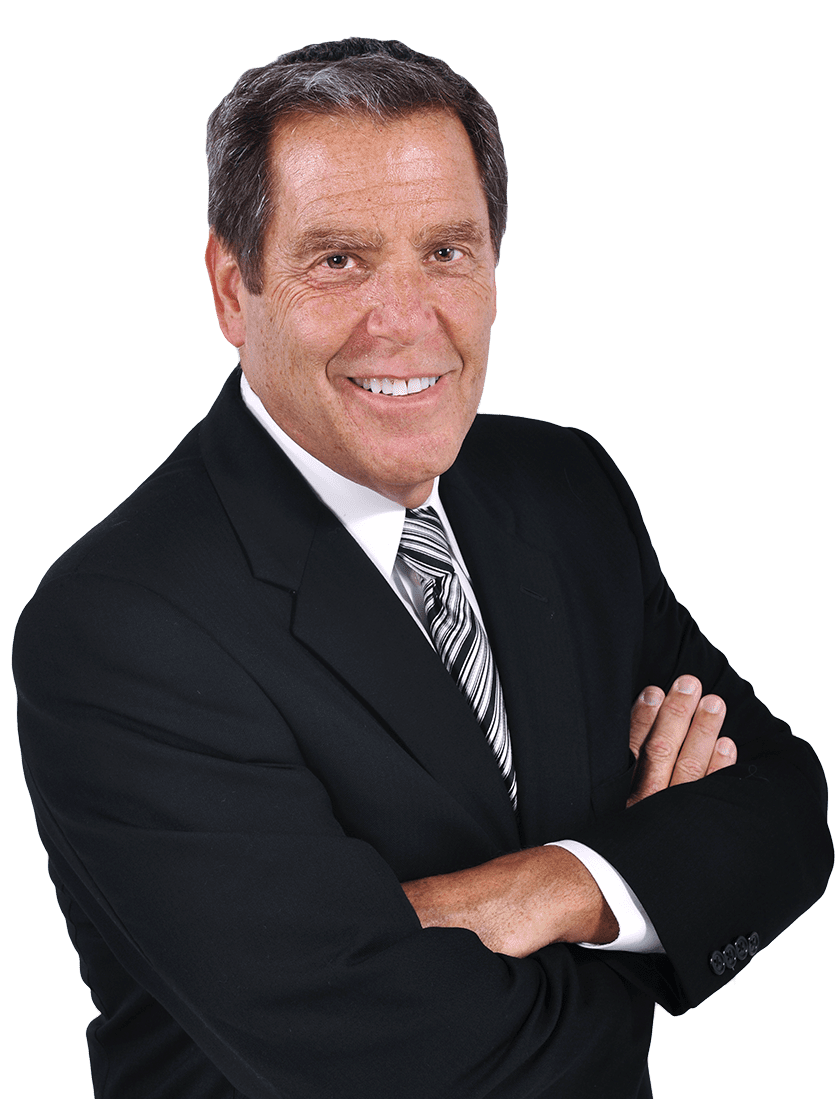
About Your Host
Bill Cates, CSP, CPAE, works with established financial advisors to speed up their growth without increasing their marketing budget. Advisors tap into Bill’s proven process to multiply their best clients through introductions from advocates and Centers of Influence (such as CPAs and attorneys), communicate their value proposition more effectively, and create a reputation in a profitable target market. Bill helps advisors move from push prospecting to magnetic marketing – to attract more Right Fit Clients™.
Bill is the author of four best-selling books, Get More Referrals Now, Don’t Keep Me a Secret, Beyond Referrals, and Radical Relevance. Bill is a highly sought-after international speaker and coach, as well as the founder of The Cates Academy for Relationship Marketing™.
Do you know someone Bill should interview (including yourself)?
Do you have a topic you’d like to see covered?
Contact Bill Cates directly: BillCates@ReferralCoach.com
